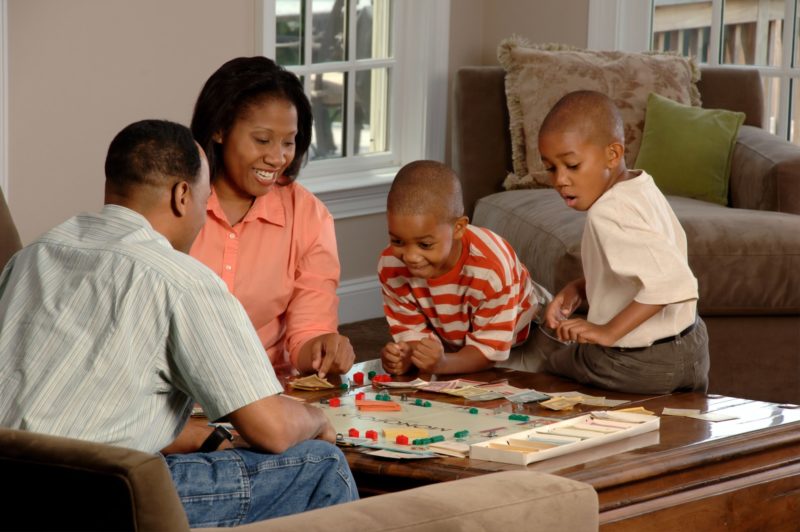As a mother of a daughter with autism and intellectual disabilities, as well as a professional in the human services field, I am all too familiar with the unique challenges facing families of individuals with special needs.
The COVID-19 (Coronavirus) pandemic brings additional worry. In these unprecedented and uncertain times, there are many steps families and caregivers can take – such as the ones listed below – to provide reassurance to children and adults living with emotional, behavioral and cognitive differences.

Remain calm: As parents and caregivers, it is important to remain calm (or at least act calm, even though we may be dealing with our own anxieties).
Have honest conversations in response to your child’s/adult’s questions and concerns. When providing information, offer it in a developmentally-age appropriate way. Using a social story or pictures and visuals also may be helpful.
Practice good hygiene: Use this time as an opportunity to teach and reinforce good hygiene and handwashing. Practice elbow bumps instead of high fives. Remind your children/adults with special needs to use a tissue and to cover their mouths when they sneeze or cough.
- My daughter, Annie, loves the song “Close to You” by the Carpenters, so I found a fun app and created a handwashing visual aid to be sure she is washing her hands long enough.
Establish a new routine with a schedule and predictable structure for the next several weeks:

Amy Kelly, MBA, MNM
National Director of Family Engagement
- Even though school might be out, it is important to wake and sleep at the same time every day – for everyone in the house.
- Consistent meal times are important.
- Consider making a written or visual schedule; post it in a highly trafficked area for all to see.
- Have some structured learning time, play time and “quiet” down time (a time where everyone gets to go to their own room/space and do what they want, whether it’s watching TV, playing with an iPad/tablet with constructive apps for individuals with autism, or just taking a nap.)
Create a sense of consistency: Even though a new routine has been established, take time to point out things that are the same. For instance, you are still having Cheerios for breakfast. You are still watching your favorite TV shows. We have to brush our teeth.) This may provide a sense of stability and reduce anxiety.
Go back to basics for play time/fun: Some of the activities we did with our kids when they were very young may bring comfort – at any age:
- Go for car rides and pack a picnic lunch.
- Bring out your ”sensory bins:” Put something different in each bin – rice, beans, pasta, water. Then, place small “treasures” and a scoop/ladle in each bin. Allow your children to play with these at the table. Challenge them to find the “treasures” – you can even create a checklist to see if they can find them all on a treasure hunt. Why do this? Sensory activities are good for calming the nervous system and bringing a sense of peace to many individuals with autism and special needs.
- Build a fort with cushions, blankets and big boxes. Tap into their imagination by talking about “where” in the world their fort is located; invite some of their toys/stuffed animals to join the party.
- Games like Memory, Chutes and Ladders, Zingo, Candyland and Simon Says can teach skills including turn-taking, color matching, counting and following directions. Make it a family event!
- Don’t forget about classic toys like Playdough, which you can make at home and allows children a chance to explore their creative side. When it comes to learning and developing, individuals with disabilities want to play and have fun. Arts and crafts can keep kids entertained for hours, while teaching them fine motor skills.
Exercise is important for the entire family all the time for overall health and well-being, but especially during this challenging time as you try to reduce stress and boost your immune system. Go for short walks, bike rides or scooter trips in the neighborhood – together. Play a game of hopscotch or basketball in your driveway with a trashcan as the hoop if you don’t have one. Set up badminton, baseball, volleyball or horseshoes in the back yard. You could even have a family talent show or dance contest.
- My family loves the Cha-Cha Slide – it’s a good song involving everyone and it tests their motor skills. Individuals of all ages are sure to laugh, dance and sing along.
Put down the phones: Establish “no screen time” periods for the whole family (yes, including yourself!). Turn off the TV and shut down computers, iPads and phones for set periods of time. Our kids sense, and feel uneasy, when we are distracted or worried ourselves. Unplugging is a great practice for everyone.
Keep in touch with friends, family and even teachers using phone, email, text and FaceTime. This is an excellent way to provide some normalcy to this unique situation, and to keep your family connected.
Expect regressions. When our children/adults with special needs have to adjust to a new routine, or are sensing anxiety around them, it can often come out as behaviors and seem like a loss in skills. This is to be expected. Go back to the Applied Behavioral Analysis (ABA) basics such as using “First – Then” strategies, ignoring negative behaviors, praising positive behaviors and following through with your requests and expectations. For more resources on techniques and behavior management, browse the numerous, FREE Autism Speaks Toolkits, specifically designed for families.
Be the change you wish to see. Practice optimism and resiliency; demonstrate it to your family on a regular basis. Reframe how you look at the situation, and explain it to them. For example: Maybe your child can finish that art project he/she has been thinking about. Perhaps your child can take on a new job or chore (now that the whole family is home and needs to pitch in) – you can emphasize what a “good helper” he/she has become.
TAKE CARE OF YOURSELF:In times of uncertainty, the No. 1 one thing our children need to stay calm is a parent or caregiver who is able to keep his/her cool. If you are feeling panicked or overwhelmed (which is totally normal, by the way!), do what you can to regulate yourself before attempting to calm your child/adult. It’s OK to let your child/adult know you are also feeling a little worried but that, in the end, we will all be OK. Offer to have them sit with you while you practice some deep breathing, or have a few moments of mindfulness.
- One of my favorite mindfulness apps is called Ten Percent Happier, which offers free sessions to help you build and nurture your own resilience and find some calm amid the chaos.
By taking a proactive approach to tackling this challenge together, you and your family will come out safer, stronger and healthier than before.
Note: Information is rapidly changing about COVID-19, so be sure to visit the Centers for Disease Control and Prevention’s Coronavirus website for the most accurate and up-to-date facts and details.
About Amy Kelly …
Amy Kelly, MBA, MNM, is the mother to Danny, Annie and Ryan. Annie is diagnosed with moderate to severe autism, verbal apraxia, intellectual and developmental disabilities and general anxiety disorder. Amy is the National Director of Family Engagement for Devereux Advanced Behavioral Health, one of the nation’s oldest and largest nonprofit providers of behavioral healthcare, and serves as a family representative on several special needs boards in the community, locally and nationally. In addition, she participates with other patients and families in efforts supported by the American Board of Pediatrics Foundation and the Autism Speaks Autism Treatment Network to address children with special needs and the importance of quality care.




I have a 3 year old with autism .been really hard since we’ve been in home.what kind of help can i get.also she is ADHD
[…] life skills, and incorporating some academics while doing it, can have tremendous benefits. The bonding time with family will create comfort, and the child will gain confidence in their newfound ability to help the family’s daily […]